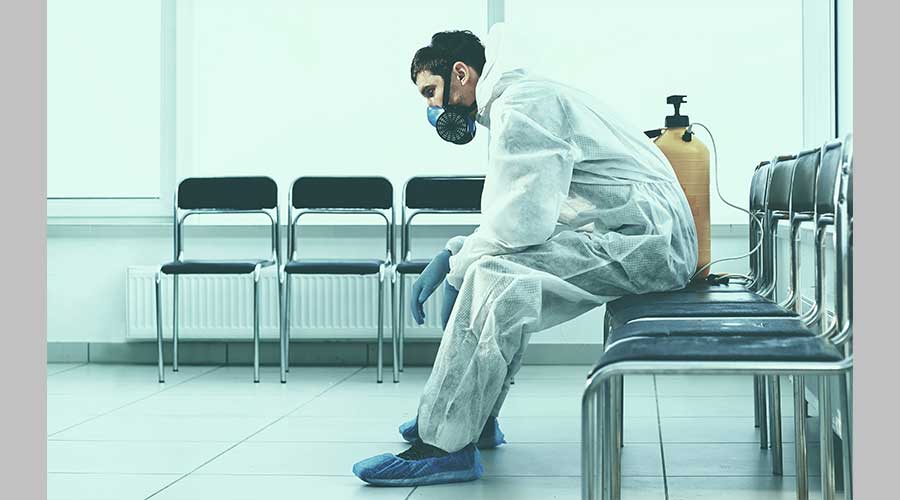Infection preventionists experienced worsening mental and physical health as a result of stressors related to the COVID-19 pandemic, according to a study just published in the American Journal of Infection Control. The study evaluated infection preventionists’ health and well-being and their association with workplace wellness programs, and it highlights a need to fix hospital and healthcare facilities’ system issues that cause burnout and poor health and to enhance workplace wellness programs and culture.
Infection preventionists are responsible for reducing the risk of healthcare-associated infections (HAIs) in hospitals and other health facilities, including long-term care and outpatient surgery centers. During the COVID-19 pandemic, these professionals have had to manage rapidly changing guidance, dramatic increases in HAIs and workload, and shortages of personal protective equipment (PPE) and staff, among other challenges.
Responses from 926 professionals show that infection preventionists’ physical and mental health were negatively impacted during the pandemic, and that individuals’ professional roles, the level of wellness support they received in the workplace and shift lengths were primary factors.
Specific findings include:
- High numbers of respondents reported that the pandemic adversely affected their mental (74 percent) or physical (60 percent) health.
- Rates of depression, anxiety and burnout among survey respondents were 21.5 percent, 29.8 percent and 65.2 percent, respectively.
- Most respondents said the pandemic negatively impacted their sleep (77 percent), physical activity (64.5 percent) and healthy eating (61.1 percent).
- Front-line practitioners (74.1 percent) and infection prevention administrators and directors (76.3 percent) had more negative mental health impacts than peers in other roles.
- Infection preventionists working 9-11 or more hours per day were more likely to report worsening physical/mental health during the pandemic as compared to their peers who worked less than eight hours per day.
- Infection preventionists with organizational wellness support were less likely to report negative mental and physical impacts from the pandemic.

 Mature Dry Surface Biofilm Presents a Problem for Candida Auris
Mature Dry Surface Biofilm Presents a Problem for Candida Auris Sutter Health's Arden Care Center Officially Opens
Sutter Health's Arden Care Center Officially Opens Insight Hospital and Medical Center Falls to Data Breach
Insight Hospital and Medical Center Falls to Data Breach The High Cost of Healthcare Violence
The High Cost of Healthcare Violence EVS Teams Can Improve Patient Experience in Emergency Departments
EVS Teams Can Improve Patient Experience in Emergency Departments